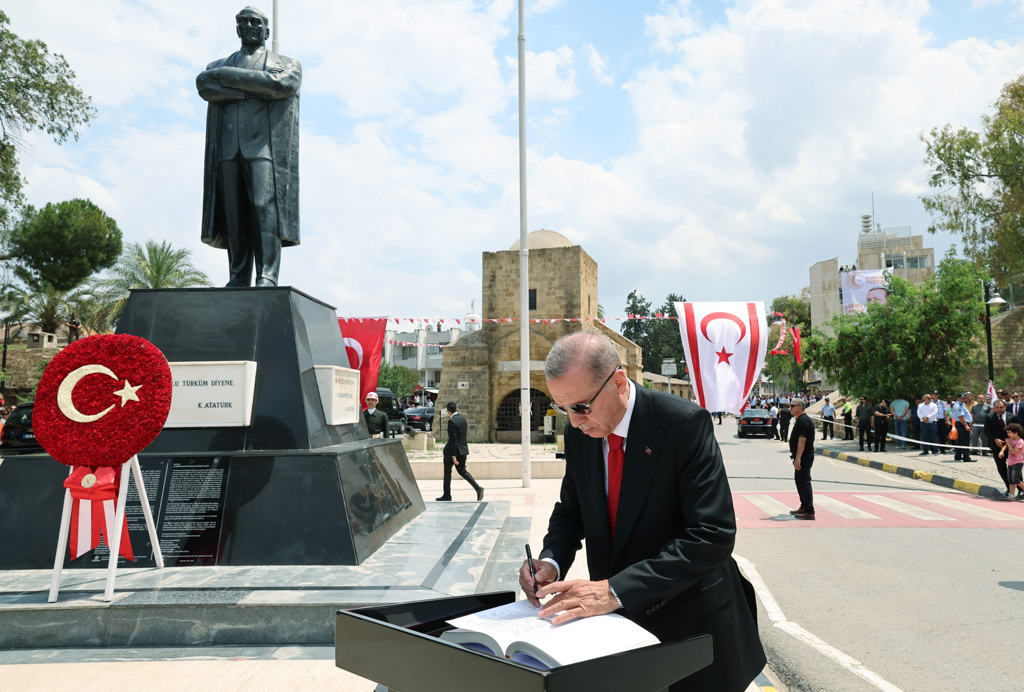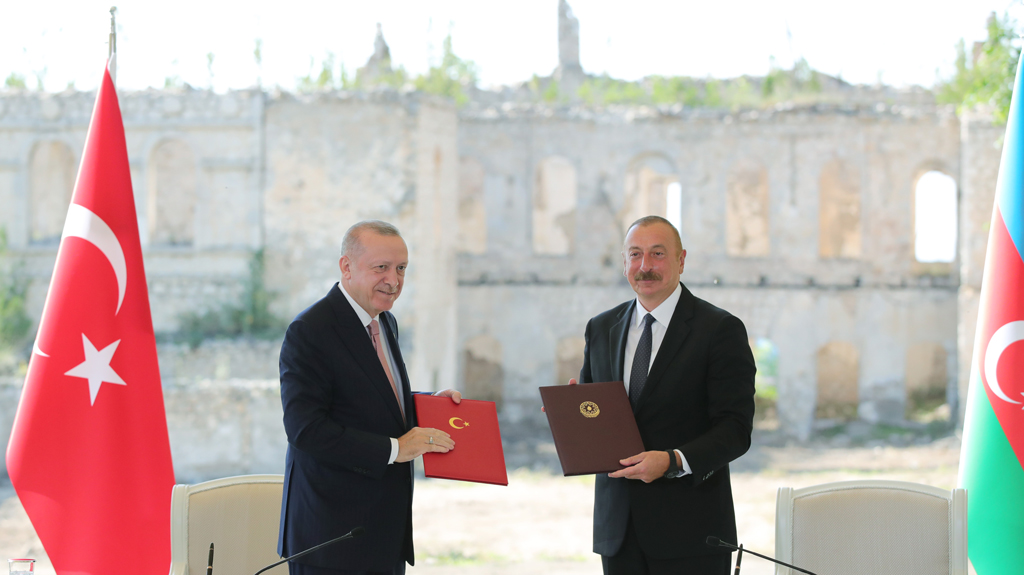
'Axis of Türkiye': Erdoğan's TRNC-Azerbaijan trip, Fidan's role
President Recep Tayyip Erdoğan visited the Turkish Republic of Northern Cyprus (TRNC) and Azerbaijan earlier this week.
Share
President Recep Tayyip Erdoğan visited the Turkish Republic of Northern Cyprus (TRNC) and Azerbaijan earlier this week.
In Lefkoşa, I could not help but notice a local Turk carrying a banner that read: “Three states, one nation.” That message really captured the essence of Erdoğan’s first trip abroad after forming his new Cabinet. The interest that the Turkish leader attracted in Lefkoşa and Baku resembled his popularity in Türkiye. After all, both governments see Erdoğan’s victory as closely related to their fate. That level of association is not unique to the TRNC and Azerbaijan. It is no secret that people in the Balkans, the Caucasus, Central Asia, the Gulf, North Africa and the Middle East followed the May 2023 elections very closely.
One cannot account for the fact that all those people rejoiced with Erdoğan’s victory with reference to identity. During his 21 years in power, Türkiye’s strong leader used foreign policy to transform his country into an active player in the international arena as well as promoted stability, security and peace in its neighborhood. Accordingly, the Turkish government used hard power in Syria, Iraq and Libya, supported Qatar during the blockade, and helped Azerbaijan address the Karabakh question. It proved that it can cooperate with any country that works with it.
At this point, Ankara stands in the way of the next hot conflict in the Balkans. At the same time, Erdoğan gained popularity worldwide by highlighting the need for justice on the floor of the United Nations General Assembly and proposing concrete solutions. In the wake of regionwide normalization, the Turkish president’s leadership (which promotes stability and trust) has caught the interest of the ruling classes. The war in Ukraine and the global uncertainty fueled by Washington’s rivalry with Beijing add to the importance of strong leaders with the potential to promote peace and peaceful solutions. The grain deal and the prisoner exchange demonstrated that leader-to-leader diplomacy works.
Tags »
Related Articles






